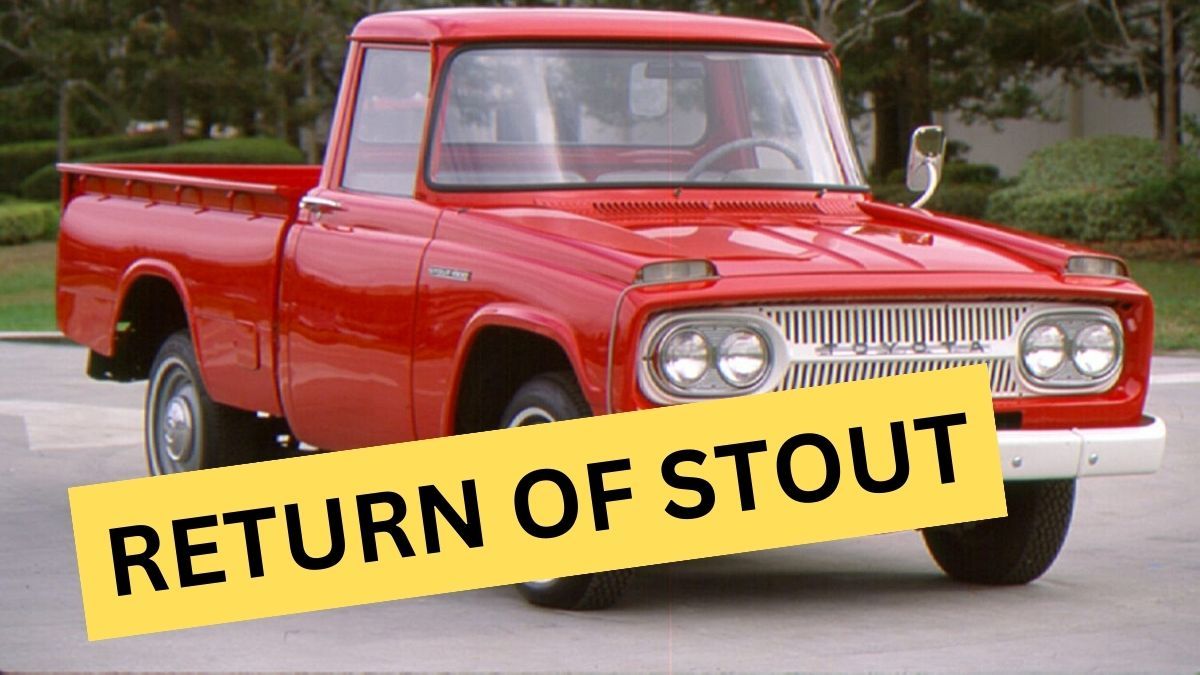Toyota is reportedly working to bring back the Stout, its compact pickup truck that was last produced in 1989. However, I believe that a new Toyota compact truck based on the current Prius platform is more likely in the interim.
The automotive world is abuzz with speculations about a different path Toyota might take - the development of a new compact truck based on the current Prius platform. While the Stout's return would be a nostalgic delight for enthusiasts, the idea of a Prius-based truck appears to be a more practical and plausible endeavor for the Japanese automaker. In this article, we'll delve into why this concept could become a reality and how it might be a direct challenger to Ford and Hyundai. Let's explore the intriguing possibilities and the market demand for a compact, no-nonsense pickup truck.
There are several reasons for this. First, the Prius platform is a known and tested system that Toyota could easily implement for a compact truck. This would save Toyota time and money in development and production costs.
Second, a Toyota compact truck based on the Prius platform would be a direct challenger to the Ford Maverick and Hyundai Santa Cruz, two new compact trucks that have been well-received by consumers.
Third, Toyota has a strong track record of success in the compact car market. The Corolla and Camry are two of the best-selling cars in the world. Toyota knows how to build reliable and affordable compact cars, and this expertise could be applied to a new compact truck.
Of course, there are some challenges that Toyota would need to overcome in order to bring a Prius-based compact truck to market. For example, the Prius platform is designed for fuel efficiency, not for towing or hauling heavy loads. Toyota would need to make some modifications to the platform in order to make it suitable for a truck.
However, I believe that these challenges are surmountable. Toyota is a resourceful company, and it has the experience and expertise to build a successful compact truck.
Why Toyota Doesn't Make Sports Cars
Toyota doesn't make sports cars because it's not their main business and sports cars don't sell as well as the family sedans and SUVs that Toyota makes.
Toyota is a company that is focused on mass-producing reliable and affordable vehicles. Sports cars are a niche market, and they don't sell in the same volume as family vehicles.
Additionally, sports cars are more expensive to develop and produce than family vehicles. This is because sports cars require more specialized components and engineering.
As a result, it doesn't make good business sense for Toyota to invest in developing and producing sports cars. However, Toyota does offer a few performance-oriented vehicles, such as the GR86 and the GR Yaris. These vehicles are still relatively affordable, but they offer more excitement and performance than Toyota's mainstream vehicles.
The Prius Platform Advantage
The Prius is a known and tested system that Toyota has mastered over the years. Implementing this platform into a compact truck could be a cost-effective and efficient choice. The hybrid technology in the Prius has already proven its reliability, making it a logical choice for a compact truck with an emphasis on fuel efficiency.
The automotive market already features compact pickup trucks like the Ford Maverick and Hyundai Santa Cruz. Both these vehicles have carved a niche for themselves by offering versatility and affordability. However, if Toyota were to introduce a Prius-based truck, it would present a formidable challenge to these competitors.
The Toyota Maverick P/U Truck, initially priced around $20,000, has garnered significant attention. However, the reality is that the actual acquisition cost has crept up to approximately $25,000. And what's even more noteworthy is that all indications suggest that the price could climb well beyond $40,000. This pricing trend raises questions about affordability and whether it caters to the core audience of budget-conscious truck buyers.
Toyota's Sensible Strategy
Toyota's strategy in avoiding sports car development is rooted in a practical approach. The company is renowned for producing family sedans and SUVs, which enjoy consistent and robust demand. These vehicles align with Toyota's core strengths and cater to a broad consumer base. In contrast, sports cars often have niche markets and may not yield the same consistent sales figures.
In the world of automotive evolution, nostalgia often collides with practicality. While enthusiasts might yearn for the return of classic models like the Stout, it's essential to recognize the shifting priorities and preferences of today's consumers. Toyota's potential endeavor into a Prius-based compact truck could be a shrewd move. The known and proven Prius platform, combined with a focus on functionality and affordability, positions this concept as a strong contender against rivals like Ford and Hyundai.
Toyota's sensible strategy of focusing on family sedans and SUVs is a testament to their business acumen. It's not just about what people want; it's about what makes economic sense for the company. So, while we may not see a Toyota sports car anytime soon, the prospect of a practical, budget-friendly, and eco-conscious compact truck is certainly intriguing.
In this ever-changing automotive landscape, Toyota's potential move into the compact truck segment exemplifies adaptability and market responsiveness. It's a testament to the fact that in the automotive world, innovation and practicality often take precedence over nostalgia, and that's a strategy that has kept Toyota at the forefront of the industry.
Armen Hareyan is the founder and the Editor in Chief of Torque News. He founded TorqueNews.com in 2010, which since then has been publishing expert news and analysis about the automotive industry. He can be reached at Torque News Twitter, Facebok, Linkedin and Youtube. He has more than a decade of expertise in the automotive industry with special interest in Tesla and electric vehicles.





